Michael Urie Puts Queer Stories Center Stage with Pride Plays
As Pride Plays takes over Woolly Mammoth for WorldPride, the "Shrinking" star talks representation and radical joy in queer theater.

“Here are my dad’s parents. And that’s my mom’s parents And these are all the houses my parents have owned — my sister and I made this collage for them.”
Michael Urie is using Zoom to pilot me around a room he’s currently occupying. He’s visiting his parents in Texas over the Memorial Day Weekend, a brief respite from filming season three of Shrinking, the hit Apple TV+ comedy series he stars in alongside Jason Segal, Harrison Ford, Jessica Williams, and Christa Miller. Urie’s better half, actor and filmmaker Ryan Spahn, is in Chicago wrapping up a show.
“There’s me and Ryan and the Obamas,” he says, the tour continuing. Urie holds the computer’s camera up to each photo hanging on the cozy family room’s wall. “There’s me from Ugly Betty. There’s me and Obama, and then my sister and her wife there. And there’s my early headshot — my mom asked for it to be autographed.” He chuckles.
When I remark that he looks exactly the same as he did 15 years ago, he flashes a grin. “Curly hair, I guess. Oh! There’s me and my mom with Manilow.” As in Barry.
“I’m a huge fan,” the 44-year-old actor says. “I’m the biggest Fanilow there is! And I’m more than a Fanilow — I’m an Ambassalow. I bring people to him and him to people. I’ve seen him more than 20 times, and I’ve weaseled my way backstage every time.”
I ask if he’s ever thought of doing a one-man show about Manilow, much in the same way he handled another storied musical icon, Barbra Streisand, in the funny and insightful Buyer and Seller, which he brought to Washington, D.C. in 2014.
“Well, of course!” he replies. “But I have way too much respect for him as a singer to sing his music myself. The only song of his I’ve ever sung publicly was an unpurchased jingle he wrote for Vick’s VapoRub. I sang it at Carnegie Hall, and that’s it. That’s as far as I’ll go. I would not dare sing one of his songs because I’m not a good enough singer, and he’s too incredible.
“One of the last times I saw him, I said, ‘You’re my favorite actor,’ because — I mean, he’s not an actor, but he acts the songs when he performs. There is a real story behind the performance. He’s an incredible showman. I am inspired by him and I love his music. He’s a really cool guy. And he’s nice to my mom.”
This is the seventh time I’ve interviewed Urie — the fourth for a cover (the first Michael Urie cover interview, in 2014, was handled by Doug Rule), so our repartee is comfortable and casual. We’ve convened on this Sunday afternoon to talk about “Pride Plays,” a vibrant three-night event at Woolly Mammoth — and co-produced by New York’s fabled Rattlestick Theater — that showcases the works of LGBTQ playwrights, old and new.
The offerings include Larry Kramer’s The Normal Heart, Sylvan Oswald’s Pony, Arturo Luíz Soria’s Novios, Lady Dane Figueroa Edidi’s The Hotel/Makeda, KJ Moran Velz’s Mother Mary, and Fear & Wonder by Jason Tseng. Each play gets two staged readings over the course of three nights, June 4 to 6, and the entire event is free, but tickets are required. (Reserve — and even donate to the cause — at www.woollymammoth.net/pride-plays.)
During our two-hour chat, we also glance on his Critic’s Choice Award-winning performance as Brian, the buoyantly gay, narcissistic lawyer, on Shrinking. It’s a television role of a lifetime, and Urie seems to know it, lemon-squeezing every ounce of comedy he can from a role that also taps into the actor’s ability to offer up resonant and introspective poignancy.
He can’t reveal much of anything about the show’s upcoming third season except to say, “The characters are going to deeper places. Bill [Lawrence, the show’s creator] always says it’s about moving forward. He always says, ‘You can’t watch a show about a guy grieving for more than three years.’ So assuming we do more than three seasons, and I hope that we do, the show I think will change after season three.”
Urie is thrilled to be returning to D.C. — he’s performed here frequently at The Shakespeare, Studio, and Kennedy Center — especially during WorldPride.
“Being in queer spaces gives me Pride,” he beams. “Being surrounded by queer people and having a month — do we need a whole month? I don’t know, but do we take it? We do! But I’m proud all year, and I think we all should feel Pride all year. But for the month of June, we are allowed to scream it from the mountaintops.”

METRO WEEKLY: Let’s start with what we are here to talk about: Pride Plays. You’ve been doing this event for how many years now?
MICHAEL URIE: Six years! The first year we did it was in 2019, and it was for New York Pride. WorldPride was in New York that year. The Rattlestick Theater approached Doug Nevin and me about doing something for WorldPride. We had been toying with the idea of doing some kind of focused event, whether it was a festival or a reading series or something, Doug and I. Doug was one of the producers of Buyer and Seller, and we’re the same age and just became pals and had similar goals in terms of what we wanted to do with our careers. He’s a lawyer and a producer and really wanted to help queer work.
He was working with a lot of playwrights as a producer and he was noticing that queer plays kept getting lumped together. Obviously, there’s no lack of queer representation in theater. There’s plenty of queer plays in the theater.
But what he kept finding was that a play by a Black trans woman would get lumped into the same category as a play by a white cis man. And those plays, while, yes, both queer, couldn’t be more different from each other. And so we kept saying, “There needs to be a place where these plays can live together and not be in competition with one another for a slot in a theater season at any particular company.”
On my side of things, I kept noticing that I was up against the same guys for roles — like Jesse Tyler Ferguson and I kept circling each other. If he couldn’t do something, I would get it. If I couldn’t do something, he would do it. And I was like, “We’re really not alike. Yes, we’re both funny gay guys from TV in our 40s, but there’s more different about us than there is the same.” We’re of a certain level that we get these opportunities, and there are all of these actors who are not getting these opportunities. Basically, you know that whole thing like, how do you get experience without experience, and people always lose work because they don’t have experience?
So we wanted there to be an entry- or mid-level opportunity for queer actors and directors and, obviously, playwrights to represent themselves, to do plays that are about the queer experience by queer writers.
We thought, “What about a festival where we do plays by queer writers and we tell queer stories and we endeavor to have queer directors and writers and actors populate them, and we present it in the Village, and we work with the Rattlestick Theater and we celebrate theater during WorldPride?”
That first year, we were like, “Let’s do four plays!” We picked four plays — some old plays, some new plays — and we thought, “This doesn’t represent the entire community at all.” So we kept adding plays that told stories from all the various subsets of the LGBTQIA community. And we ended up doing 19 plays.
MW: Oh, my God.
URIE: I think we did a pretty good job of representing everybody by then. So that was the biggest year. The next year we were going to do upwards of 20 plays, all staged readings, and then the Covid pandemic hit. So we did an all-online festival. We paired with Playbill.com and presented several of them for everyone to see.
For a few years, we were doing more of an educational side of things. We worked with Donja R. Love, who’s an amazing playwright. We had a couple of different educational groups that would meet and present, one called Write it Out, which was for writers who were living with HIV/AIDS, and one called Youth Right Now, which was for young queer writers. And then last year we started back in person with a one-day festival at the Rattlestick during Pride where we did three new plays. And then the Woolly Mammoth Theatre Company approached us about WorldPride 2025, and so that’s what brings us to D.C.

MW: You have six plays — a mix. You have Larry Kramer’s The Normal Heart, which is a classic. But I’m looking at the list, and really, that’s the only one I’ve heard of. The rest all seem to be new works or works that we haven’t really seen much of. What’s your selection process? How do you decide?
URIE: So, I read a ton of plays — there are a few of us who read a lot of plays. This year, I think I read all the plays that were in consideration. This year we didn’t really have the time to open the submissions wide, so we just used our network, and leaned heavily on the Woolly Mammoth network because we wanted to make sure that we represented D.C.-based writers.
Three of the plays are by writers who are D.C.-based. And then one — Novius — is a New York writer with a really strong Rattlestick connection, and Pony by Sylvan Oswald is actually an older play, an early trans play. Will Davis, who runs the Rattlestick now, brought us that. He’s directing it.
MW: I’m not familiar with it.
URIE: It’s a really cool play. And what’s cool about it is that it is about a trans man, but that’s not the plot. It was, in some ways, way ahead of its time. I think it’s a play that’s worthy of being a part of the great queer plays.
MW: Looking over the list, I do know Lady Dane Figueroa Edidi very well. It’s great she’s in there. I’m not as familiar with KJ Moran Velz and Jason Tseng.
URIE: Those are the other D.C. playwrights who are up and coming. Jason actually submitted two plays for us, both really cool. And KJ Moran Velz’s Mother Mary is a beautiful play that we couldn’t pass up. We read a bunch of others. There are a lot of great playwrights in D.C. It was a tough choice.
MW: Are these shows off-book?
URIE: They’re staged readings, and they are, in part, developmental. Obviously, we’re not going to tinker with the text of The Normal Heart or Pony, although I do believe the writer will be in rehearsal for Pony. But the new plays, we’re treating as developmental readings. Each play will have two performances over the week, and they will be book-in-hand or there will be at music stands, depending on what the director wants to do.
MW: Your end goal seems to be both exposure and opportunity.
URIE: Right. And to put queer artists in a predominantly queer space and allow them to be free to make art and to represent themselves. It gives writers and actors and directors great exposure.
MW: You’re also doing this in New York again for New York Pride.
URIE: We haven’t announced the plays, but there will be four plays in New York all on one day. We are in the process of casting those now. I assume we’ll announce soon. We have some fun casting to announce.

MW: What about the casting in D.C.?
URIE: I can tell you Normal Heart is being directed by Zhailon Levingston, the guy who directed Chicken & Biscuits that I was in on Broadway, and he just co-directed the Jellicle Ball revamp of Cats that took place in the ballroom culture. Our Ned Weeks is going to be Robin de Jesus, who will be sooo good.
MW: That’s amazing casting, because it’s a draw to a play everyone thinks they know so well. His performance is going to change the equation.
URIE: Exactly, he’s going to change the equation. We wanted to do Normal Heart not only because it’s a brilliant play, but our rights are once again being neglected, or they’re being attacked and targeted. I feel like the reason to revive a play is to re-examine it in the time you’re reviving it. This is an unfortunately important time for us to re-examine that very political play about the government back then neglecting the community. These days, it’s an outright assault on the community.
MW: Honestly, the closest thing we have to a Larry Kramer right now is Pete Buttigieg — though he’s like a very well-measured, non-shouty Larry Kramer.
URIE: He’s on Larry’s shoulder.
MW: What is the importance of LGBTQ plays to you?
URIE: I mean, I guess on the one hand, the theater — and all performing arts — but the theater is and has always been such a safe place for LGBTQ people. Its audience has always been a safe place for queer people and their allies. But I love the theater because we are sharing an experience together — a unique, once-in-a-lifetime experience. Even if a show runs for ten years, the performance you see is the only performance of its kind, and the people [in the audience] you share it with will never be back together again in that same chemical mixture, and it’s special.
But I guess there’s something about queer plays in the theater, it just feels the most homegrown and the most authentic place to do them. I love queer movies, too. And I love queer music. And, I mean, I love queer press. [Laughs.] But a queer theater company or a queer theater festival — there’s a homey feeling to it.
I keep using the word authentic, but it’s more than that. It’s more like inevitable. There’s something inevitable about telling our stories in that space because that space is absolutely for us. The theater is such an empathetic place where we go to learn about the human condition and see ourselves reflected back, but also see other ways people can be.
Another thing we wanted to do with Pride Plays was not show queer trauma. We didn’t want to do plays that were about coming out and being rejected, or about being gay and being persecuted and killed. The idea is that queer theater can be about the future or about the joys of being queer, or about the way the world should be, could be, is for so many. That’s another major focus for us.
MW: Let’s talk briefly about Shrinking. I finally watched it a few months ago. It took me a while to get to it — there are too many things to watch. I was hooked from episode one, and that’s all I watched for weeks. I loved everything about it. I even loved the opening credits.
URIE: Isn’t that a great song? I love that song.
MW: But what I really loved about it was you. When you binge a show, you can see how — and if — the characters evolve. And there was a big change in the way the writers approached you from season one to season two. It’s as though they learned to write for your strengths as an actor. You were funny in season one, but you were hilarious in season two, and also deeply moving. There were layers added to you in season two that were not there in season one.
URIE: All the characters grew, I think, from season one to season two — I think mine in a big way. In part, because the show is about chosen family, and a lot of the characters when the show started didn’t know each other. I remember for a lot of season one, my character of Brian referred to Ted McGinley as “Liz’s husband” — I didn’t even know his name, and then by season two, I’m part of his family.
I think that we are meeting Brian in a huge period of his life where he has become a member of this chosen family where three shrinks aren’t letting him get away with his usual antics. His long-time partner [Charlie] wants to get married, then his long-time partner wants to have a child. I think it’s inevitable that he grows as a person, and the writing becomes more that his quirks get quirkier and his heart gets heartier.
I also think, on a completely artistic level, the writers got to know us better. They had a whole season’s worth of material to watch and say, “Oh, we like when Michael does this,” or “He’s great when he does this,” or “These kinds of speeches work well on him.” In season two, I had the absolute gift of being the gateway for Louis — Brett Goldstein’s character — to come into the fold with the group, which I did not see coming.
I guess the short answer is really good writing has helped me to blossom into this very exciting character in season two — and season three. We have four more episodes to film, and again, Brian’s still growing, he’s still changing, and I’m learning all the time about who the guy is.

MW: Speaking of fatherhood, have you and Ryan ever sat down and discussed parenting?
URIE: We have, yeah. Obviously, we haven’t done it, but we’ve talked about it. The tricky thing, and this is a thing that I’m sure many, many [LGBTQ] people, especially my age, deal with, is that when we were growing up, marriage equality wasn’t a thing and didn’t seem like it was going to be a thing. Adoption was more of a thing. In my thirties, I remember hearing more and more about surrogacy and that kind of stuff, or adoption or foster care. queer people who are fostering. My sister [who is married to a woman] is seven years older, and she has kids that they had through an anonymous donor. When you’re a woman, you’re a lot closer to being able to make a baby than when you’re two guys.
For Ryan and me, anytime we would start talking about it, the choices overwhelmed us. We never even got to the idea of adding a child to our life — it was the choices we would think about. We live in a one-bedroom apartment — an apartment we literally bought from a couple who outgrew it because their baby was too big.
Now, if we were trying to adopt a child, they wouldn’t let us have one in a one-bedroom apartment. They would not approve us. Where would we put that child? But if we were straight people — and this is nothing against the people we bought our apartment from — but if we were straight people and we just had a child, we could put them anywhere we wanted and nobody would say anything.
MW: That’s a point, wow.
URIE: That was a big one. That was like, oh my God, we can’t even bring a child into this apartment. We always sort of hit a wall with the choices that you have to make, and the crazy expenses that come with obtaining a child. Obviously, everyone deals with the expenses of having a child, but for queer people, there are all the many decisions one has to make. We can’t just have a fun night and get pregnant.
MW: Well, you can try. Do you think that if you don’t have a child, you’re going to regret that later in life?
URIE: I have wondered that, and I do occasionally still wonder that. But Ryan and I have a lot of young people in our lives that we love very much. We have nieces and nephews and then friends with kids. So there are a lot of children in our lives who I think will stay in our lives. I mean, time will tell. The siblings obviously will stay in our lives, and so those kids, we’ll at least hopefully see them a lot. I think it’s possible that that will scratch the itch for us and we won’t have that regret. But I don’t know. I might. You don’t have kids?
MW: I’m 66, and there are going to be no kids. I was with somebody for 16 years, but we broke up 12 years ago, and I’ve been happily single with cats. I get to watch what I want to watch on television — at least that’s what I keep telling myself. I’m of the gay generation where marriage was an unattainable idea. So I put kids out of my head decades ago, and I’ve never been able to make the switch back. But as I age, the only reason I regret not having kids is that I’ll have no one to take care of me as I venture into the age of applesauce and feeding the ducks.
URIE: I think about that sometimes, too. Wouldn’t it be great to have a kid to take care of me? But what if they didn’t? What if I had a kid and they were an asshole and they wouldn’t take care of me? That’s a thing.
MW: That’s a big thing. I’m curious if there’s a role you are just dying to play that you haven’t yet played?
URIE: Well, Richard II actually. Which I’m going to be working on with the Red Bull Theater Company [in New York] this fall. That was a really important role that I wanted to do before I got too old. Another one is The Glass Menagerie. The character is much younger than I am technically, but it’s a memory play, so hey, he can be however old we want. He’s just remembering it.
MW: Why that one specifically?
URIE: I think it’s beautiful. Tennessee Williams was the first playwright that I really fell for. I saw a production of The Glass Menagerie when I was 14, a local production that I just thought was incredible. I loved it so much, and I loved it before I even really knew what it was about. I loved the poetry. I loved the characters. I loved when he screamed at his mother. And I loved that third act with the gentlemen caller is like its own play — it’s just the most beautiful thing. I’ve auditioned for it before. I’ve read it a bunch. I’ve seen many, many productions. And now I feel like I really get it. I really know what it’s about.
MW: You must be at the level where you can produce your own work at this point? Or do you not want to do that?
URIE: I don’t want to do things that are vanity. I don’t want to be a vanity project person. I want it to make sense for everyone. Yes, I want to play Richard II, but it has to make sense for everyone. I don’t want it to just be like, “All right, Michael wants to do this. Let’s do it.” I don’t want it to be like that. I want it to be good for everybody.

MW: We are all aghast at what’s happening at the Kennedy Center here. I’ve heard from reliable sources that Broadway Center Stage, which you’ve participated in twice, is likely dead as a result, which is horrifying to me. Do you have any thoughts about the Kennedy Center Trump takeover?
URIE: I don’t know what to say because it just feels so icky. I’ve been asked before, would I now perform at the Kennedy Center? And the answer is probably not. But also, I definitely wouldn’t want to limit myself from performing for Republicans. I would like Republicans to watch what I’m doing because I believe that theater is an empathic art form, and I think we can all learn from each other.
And that’s part of the reason why it’s so important for me to help bring Pride Plays to D.C., because the Kennedy Center’s not doing anything for Pride. I was just told by a branding agent that I work with that they’ve tried to get hundreds of different brands to support Pride Plays, and everyone’s afraid to support LGBTQ causes. It’s so wild to think that two years ago, every corporation in America was fully rainbow for the entire month of June and now everyone’s afraid.
MW: In your own way, how do you fight against the LGBTQ injustices that are happening?
URIE: Well, I think all of us who exist in the public eye are fighting just by existing. I’m really proud that Shrinking appeals to a very straight audience. I see more straight people who love the show and love me in it than anything I’ve ever done before. And, obviously, I don’t mean to say that all Republicans are straight and all straight people are Republicans, but I think that putting a queer character like Brian and Charlie and their family in this show is really important. And I’m super proud of that. I mean, of course I was proud of Ugly Betty and I was proud of Modern Family and all the shows I’ve been on that had queer representation, but this one really is I think reaching across the sexuality divide in a way.
I’m doing less social media — and certainly less political social media than ever before — because I’m exhausted. And you know that we, as queer people, come out every day, every single day, especially those of us that don’t pass as straight essentially, and especially people that are front facing like you and me who work in queer spaces, who promote agendas. Our existence is a protest. And just being out there every day fighting the good fight is a protest.
I think about this every day. What am I doing to help? And I have to often just tell myself, “The shows you’re on, the work you’re helping promote, and the organizations that you’re with are doing it — your existence is doing something.” But I don’t know, am I? Is it? I hope so.
Pride Plays runs from Tuesday, June 3 to Friday, June 6, at the Woolly Mammoth Theatre Company, 641 D St. NW. All performances begin at 7:30 p.m. Admission is free, but tickets are required. For more information or to reserve tickets, call 202-393-3939 or visit www.woollymammoth.net/pride-plays.
For more information about Pride Plays 2025 in New York City, visit www.prideplays.com.
Watch Michael Urie in Shrinking on Apple TV+. Visit www.tv.apple.com.
Support Metro Weekly’s Journalism
These are challenging times for news organizations. And yet it’s crucial we stay active and provide vital resources and information to both our local readers and the world. So won’t you please take a moment and consider supporting Metro Weekly with a membership? For as little as $5 a month, you can help ensure Metro Weekly magazine and MetroWeekly.com remain free, viable resources as we provide the best, most diverse, culturally-resonant LGBTQ coverage in both the D.C. region and around the world. Memberships come with exclusive perks and discounts, your own personal digital delivery of each week’s magazine (and an archive), access to our Member's Lounge when it launches this fall, and exclusive members-only items like Metro Weekly Membership Mugs and Tote Bags! Check out all our membership levels here and please join us today!







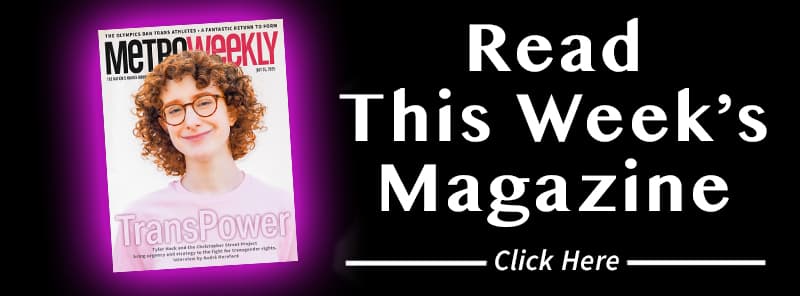
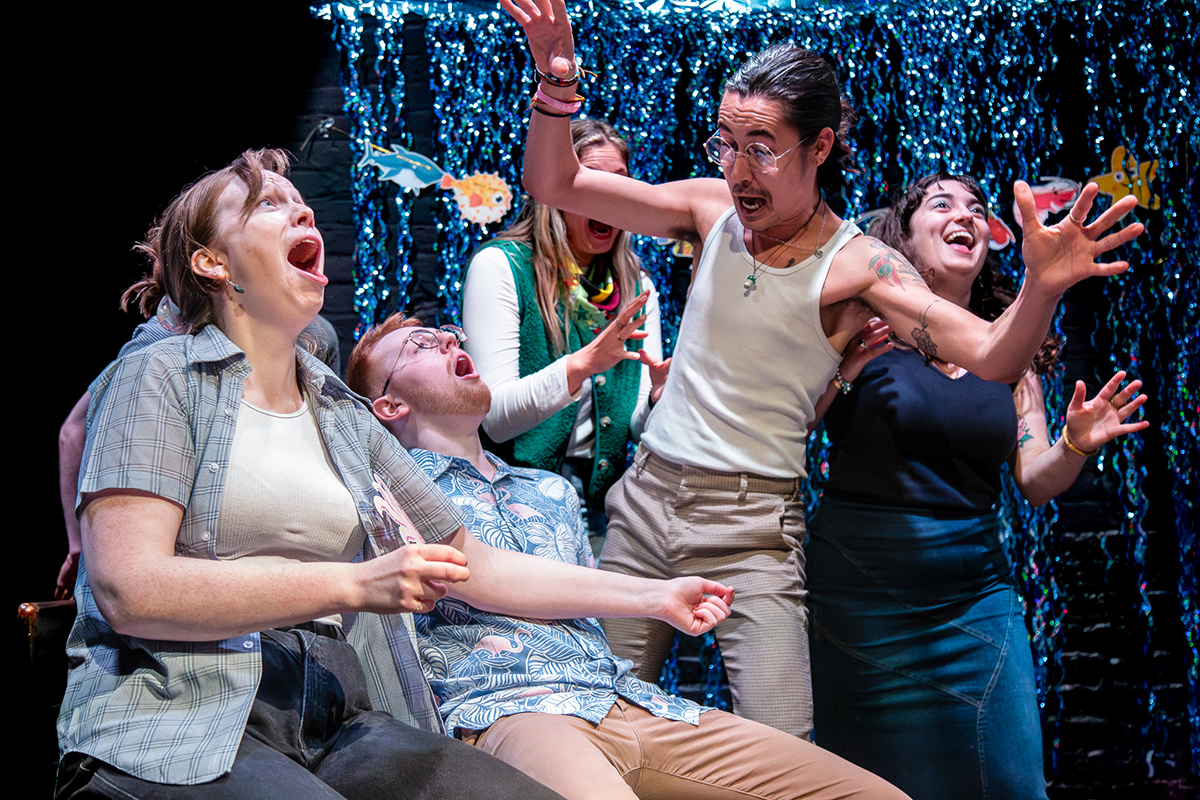
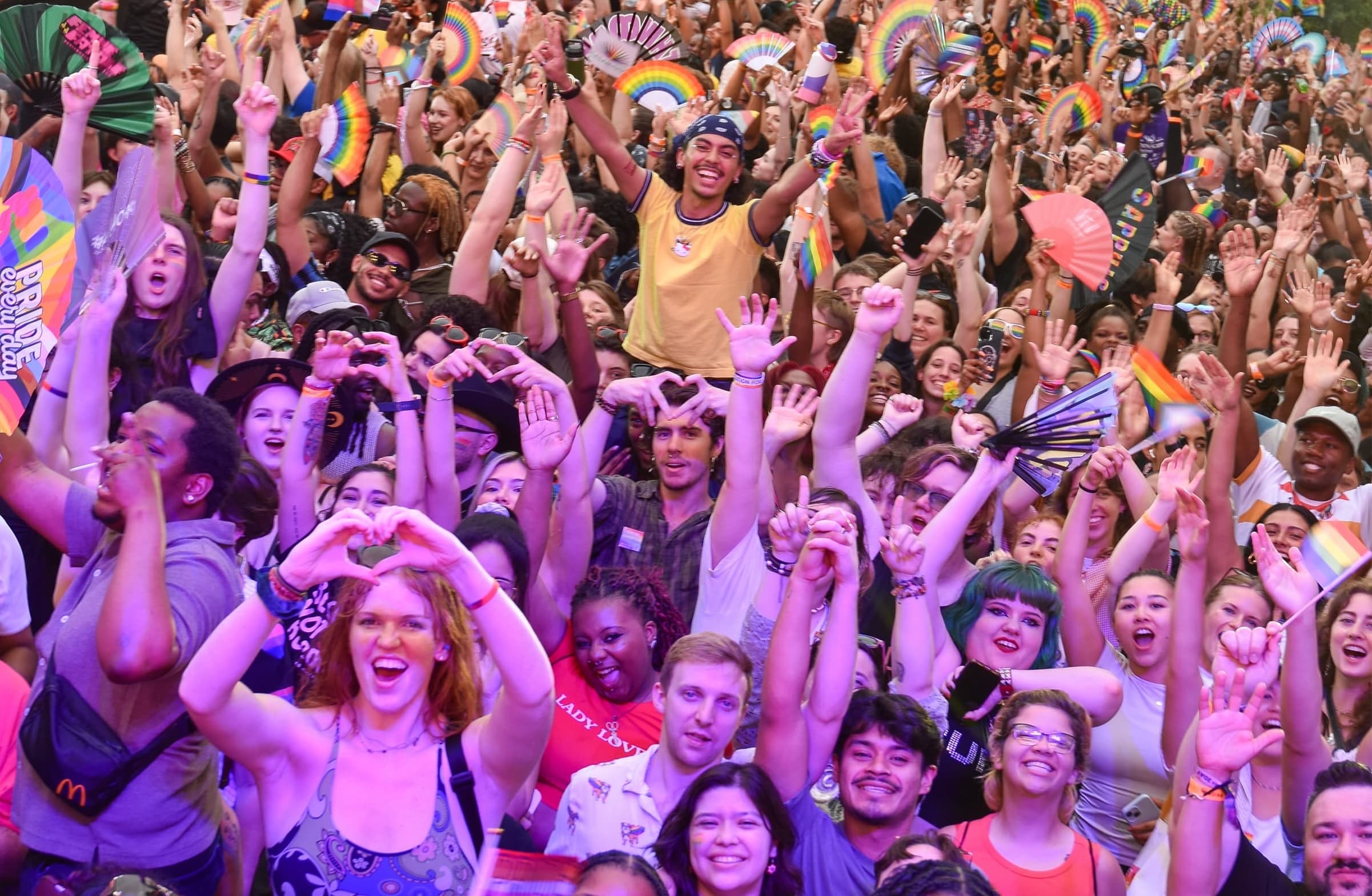
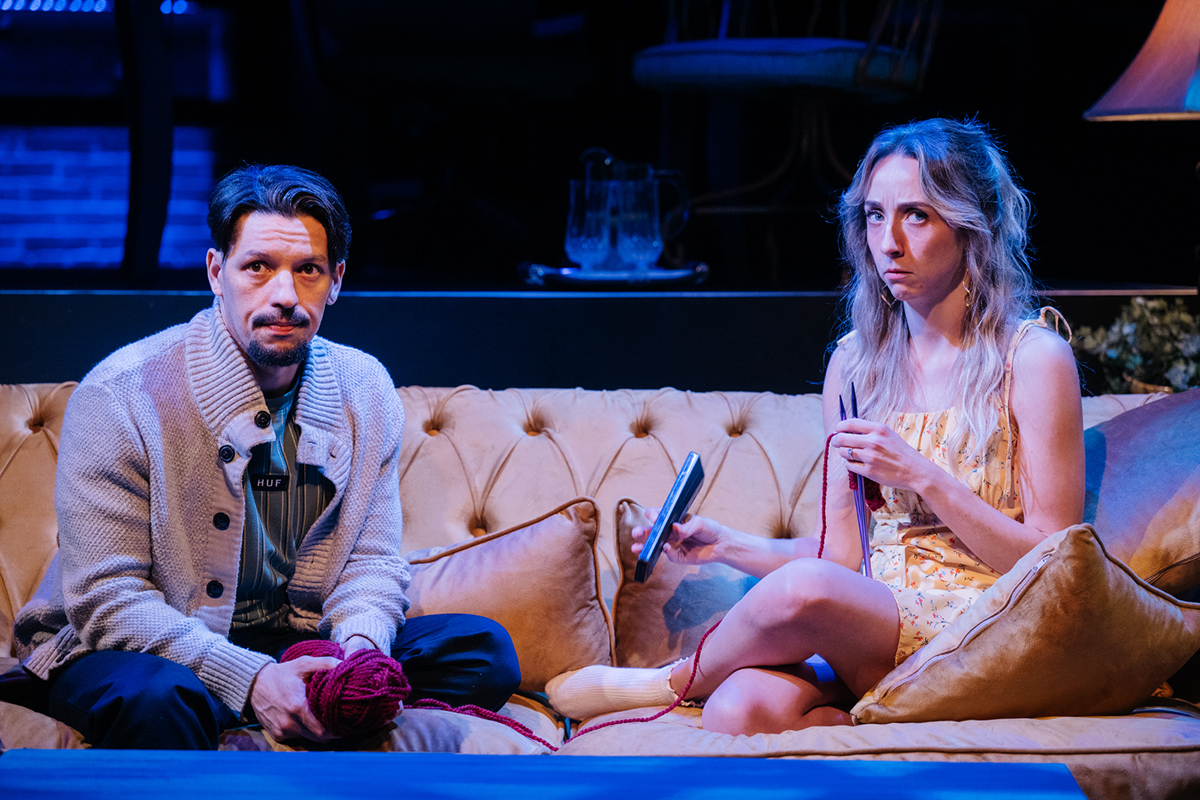













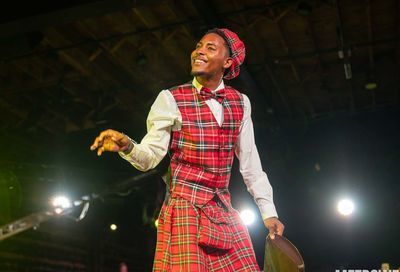
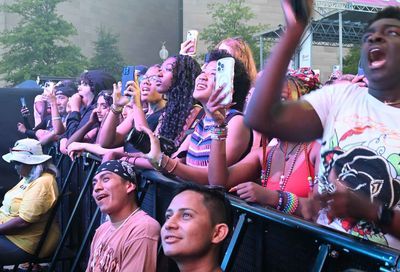
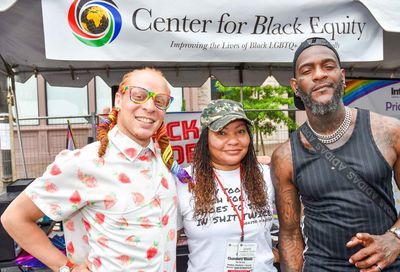
You must be logged in to post a comment.